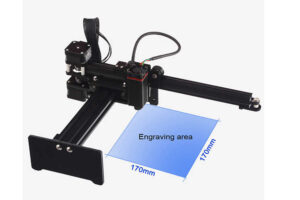Precision CNC Engraving Manufacturer in China

At ChinaMetalCastings, we specialize in high-precision CNC engraving and machining for a wide range of industries. As a trusted CNC manufacturer in China, we provide top-quality machining services for both metal and plastic components, ensuring tight tolerances, exceptional surface finishes, and reliable performance.
Our CNC Machining Capabilities
Tolerances
We adhere to strict tolerance standards to meet your exact specifications:
- General Tolerances:
- Metals: ISO 2768-m
- Plastics: ISO 2768-c
- Precision Tolerances:
- We can manufacture and inspect parts with tolerances tighter than ±0.001 inches (±0.025mm) based on your GD&T (Geometric Dimensioning and Tolerancing) requirements.
Material & Design Specifications
- Minimum Wall Thickness: 0.5mm
- Minimum End Mill Size: 0.5mm
- Minimum Drill Size: 1mm
Part Size Range
- CNC Milling:
- Maximum: 4000 × 1500 × 600 mm
- Minimum: 5 × 5 × 5 mm
- CNC Turning:
- Maximum: Ø200 × 500 mm
- Minimum: Ø2 × 2 mm
Production Volume Flexibility
We support projects of all sizes, from rapid prototyping to high-volume production:
- Prototyping: 1 – 100 pcs
- Low-volume production: 101 – 10,000 pcs
- High-volume production: Above 10,001 pcs
Fast Lead Times
- Standard lead time: 5 business days for most projects.
- Express delivery: Simple parts can be delivered in as fast as 1 day.
Why Choose ChinaMetalCastings?
✔ High Precision: Advanced CNC machines ensure tight tolerances and superior accuracy.
✔ Wide Material Selection: Machining for metals (aluminum, steel, titanium, brass, etc.) and plastics (ABS, POM, PTFE, etc.).
✔ Quality Assurance: Strict inspection processes to meet international standards.
✔ Competitive Pricing: Cost-effective solutions without compromising quality.
✔ Fast Turnaround: Quick prototyping and production to meet urgent demands.
Whether you need custom CNC-machined parts, precision engraving, or high-volume production, ChinaMetalCastings is your reliable partner in China.
Contact us today for a quote and let us bring your designs to life with precision and efficiency!






